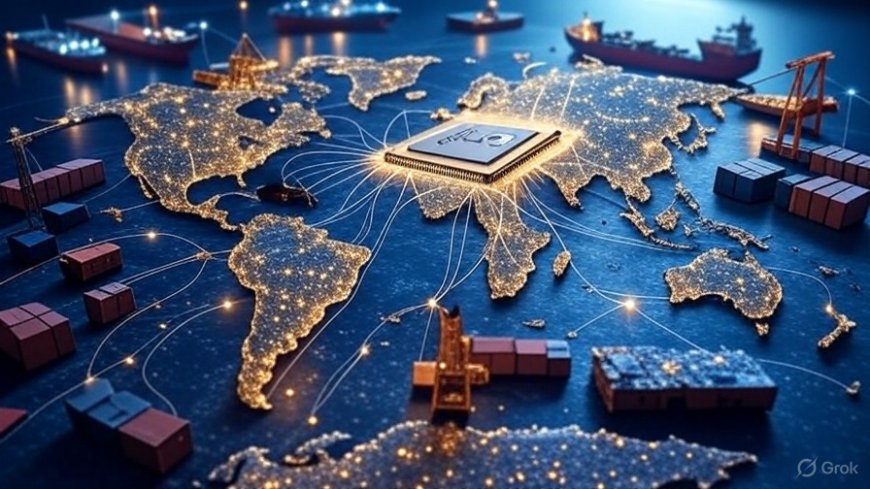How Trump-Era Tariffs Are Accelerating the Rise of IMEC and Reinventing Global Chip Supply Chains
Trump-era tariffs have disrupted global supply chains—but that friction may be fueling a faster rollout of IMEC, a strategic new chip trade corridor spanning India, the Middle East, and Europe.

The Big Picture
In a twist few foresaw, the aggressive tariffs imposed during Trump's administration—once viewed simply as economic friction—are now acting as powerful incentives, invigorating the India–Middle East–Europe Economic Corridor (IMEC). Industry experts suggest that these trade disruptions are fast-tracking the development of IMEC, a landmark international chip initiative designed to bolster global supply chain resilience.
Tariffs as an Unexpected Accelerator
Trump-era tariffs reshaped the global economy by saddling imports with steep duties—often exceeding 100% on Chinese goods—prompting firms to rethink how and where they source components.AInvest
These policies spurred a wave of strategic pivots: companies increasingly sought diversified manufacturing footprints, with increased near-shoring and strong consideration for supply routes outside of Asia. The net result? A dramatic acceleration in initiatives like IMEC, which offers alternative, more secure corridors from production to market.
IMEC: A Game-Changer for Supply Chains
The India–Middle East–Europe Economic Corridor (IMEC) is a strategic infrastructure and trade effort designed to bypass traditional chokepoints and boost economic integration across regions. France’s Special Envoy for IMEC, Gérard Mestrallet, characterized it as a collaborative project rooted in resilience and shared vision. The Port of Marseille is set to become one of the corridor’s pivotal entry points, serving as a critical hub in the network.The Economic Times
This new trade artery stands out as a realistic, strategically sound response to the fragility exposed by escalating U.S. tariffs.
Why This Matters to the Chip Industry
-
Diversification Beyond Asia: Chipmakers are increasingly evaluating corridors like IMEC to bypass volatile trade relationships—especially with China. IMEC promises more reliable access to critical components and manufacturing materials.
-
Long-Term Strategic Investment: IMEC signals a shift from reactive, temporary fixes to lasting structural adjustments in supply networks. It embodies resilience in a fragmented global economy.
-
Geopolitical Leverage: With transshipment points bypassing key Asian trade routes, IMEC strengthens diplomatic ties and opens new markets—critical for chip firms looking to hedge political risk.
Roadmap to the Future
| What to Watch | Why It Matters |
|---|---|
| IMEC Infrastructure Development | As projects take shape, stakeholders gain visibility and confidence. |
| Investment from Chip Industry Players | Firms aligning with IMEC could gain preferential supply access. |
| Policy Momentum | US, European, and Asian trade policies will determine how quickly IMEC becomes a mainstream route. |
| Technological Collaboration | Partnerships among IMEC’s nations may foster chip design advancements and pooled R&D initiatives. |
Final Word
Trump’s tariffs, initially criticized for their bluntness and economic risk, unexpectedly served as catalysts for global innovation. IMEC is emerging not just as a response, but as a reimagining of how chips—and broader supply chain logistics—will function in an increasingly fractured world. Whether these shifts pave the way for a truly resilient semiconductor ecosystem remains to be seen—but the contours of that future are already emerging.








